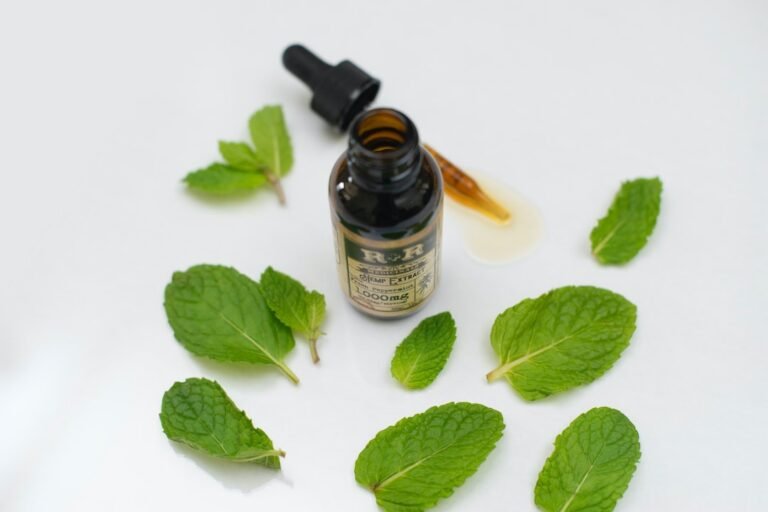Sleep Soundly Without Worry: Discover the Benefits of Non-Habit Forming Sleep Aids
Quality sleep is essential for overall health and well-being. It plays a crucial role in maintaining physical and mental health, as well as cognitive function. Unfortunately, many people struggle with getting enough sleep or experiencing restful sleep due to various factors such as stress, anxiety, or medical conditions. Sleep deprivation can have negative effects on our mood, cognitive abilities, and physical health. In this article, we will explore the importance of quality sleep and discuss the risks of using habit-forming sleep aids. We will also delve into the world of natural sleep aids and their benefits.
Understanding the Importance of Quality Sleep
Getting enough quality sleep is vital for our overall health and well-being. When we sleep, our bodies go through various stages of rest and repair. During these stages, our brains consolidate memories, regulate emotions, and restore energy levels. Quality sleep has been linked to improved mood, cognitive function, and physical health.
One of the benefits of quality sleep is improved mood. Lack of sleep can lead to irritability, mood swings, and increased stress levels. On the other hand, getting enough restful sleep can help regulate emotions and improve overall mood. It allows us to approach daily challenges with a more positive mindset.
In addition to improved mood, quality sleep also enhances cognitive function. When we are well-rested, our brains are better able to focus, concentrate, and make decisions. Sleep deprivation, on the other hand, can impair cognitive abilities such as memory retention and problem-solving skills.
Furthermore, quality sleep is essential for maintaining physical health. During sleep, our bodies repair tissues, produce hormones, and strengthen the immune system. Lack of sleep has been linked to an increased risk of developing chronic conditions such as obesity, diabetes, and cardiovascular disease.
The Risks of Using Habit-Forming Sleep Aids
Many individuals turn to prescription or over-the-counter sleep aids to help them fall asleep or stay asleep. While these medications can be effective in the short term, they come with potential risks and side effects. Habit-forming sleep aids, such as benzodiazepines or barbiturates, can lead to dependence and withdrawal symptoms when discontinued.
Additionally, sleep aids can cause daytime drowsiness, dizziness, and impaired coordination. This can increase the risk of accidents or falls, especially in older adults. Other potential side effects include headaches, dry mouth, and gastrointestinal issues.
Moreover, sleep aids can interact with other medications or substances, leading to adverse reactions. It is important to consult with a healthcare professional before using any sleep aid, especially if you are taking other medications or have underlying medical conditions.
Natural Sleep Aids: An Overview
Given the potential risks and side effects of habit-forming sleep aids, many individuals are turning to natural alternatives. Natural sleep aids are derived from plants or herbs and are generally considered safe for short-term use. They can help promote relaxation and improve sleep quality without the risk of dependence or adverse effects.
There are several types of natural sleep aids available, including herbal supplements, essential oils, and lifestyle changes. These natural remedies work by promoting relaxation, reducing anxiety, and calming the mind and body.
Melatonin: A Safe and Effective Sleep Aid
Melatonin is a hormone naturally produced by the body that regulates sleep-wake cycles. It helps signal to the brain that it is time to sleep. Melatonin supplements are commonly used as a natural sleep aid to help individuals fall asleep faster and improve sleep quality.
Melatonin supplements are generally safe for short-term use and have few side effects. However, some individuals may experience drowsiness, headache, or nausea. It is important to start with a low dose and consult with a healthcare professional before using melatonin as a sleep aid.
Valerian Root: A Natural Remedy for Insomnia

Valerian root is an herb that has been used for centuries as a natural remedy for insomnia. It works by increasing levels of gamma-aminobutyric acid (GABA), a neurotransmitter that helps calm the brain and promote relaxation.
Valerian root supplements are available in various forms, including capsules, teas, and tinctures. They are generally safe for short-term use and have few side effects. However, some individuals may experience drowsiness, dizziness, or upset stomach. It is important to consult with a healthcare professional before using valerian root as a sleep aid, especially if you are taking other medications.
Chamomile: A Soothing Herb for Restful Sleep
Chamomile is a herb that has been used for centuries to promote relaxation and improve sleep quality. It contains compounds that have calming and anti-inflammatory properties, making it an effective natural sleep aid.
Chamomile can be consumed as a tea or taken in supplement form. It is generally safe for short-term use and has few side effects. However, some individuals may experience allergic reactions or interact with certain medications. It is important to consult with a healthcare professional before using chamomile as a sleep aid.
Lavender: A Relaxing Essential Oil for Bedtime
Lavender is an essential oil that is known for its calming and relaxing properties. It has been used for centuries to promote restful sleep and reduce anxiety.
Lavender essential oil can be used in various ways to improve sleep quality. It can be diffused in the bedroom, added to bathwater, or applied topically to the skin. It is generally safe for short-term use and has few side effects. However, some individuals may experience skin irritation or allergic reactions. It is important to dilute lavender essential oil properly and consult with a healthcare professional before using it as a sleep aid.
Lifestyle Changes to Improve Sleep Quality
In addition to natural sleep aids, making lifestyle changes can also help improve sleep quality. Establishing a bedtime routine can signal to the body that it is time to sleep. This can include activities such as reading a book, taking a warm bath, or practicing relaxation techniques.
Avoiding caffeine and alcohol before bed is also important for promoting restful sleep. Caffeine is a stimulant that can interfere with sleep, while alcohol can disrupt the sleep cycle and lead to fragmented sleep.
Creating a sleep-friendly environment can also enhance sleep quality. This includes keeping the bedroom cool, dark, and quiet. Investing in a comfortable mattress and pillows can also make a significant difference in sleep comfort.
Combining Natural Sleep Aids for Optimal Results
Combining different natural sleep aids can enhance their effectiveness and promote better sleep quality. For example, taking melatonin supplements along with using lavender essential oil can create a calming and relaxing bedtime routine.
It is important to start with low doses and gradually increase as needed. It is also important to consult with a healthcare professional before combining natural sleep aids, especially if you are taking other medications or have underlying medical conditions.
Consult with Your Doctor Before Trying Any Sleep Aid
While natural sleep aids are generally considered safe for short-term use, it is important to consult with a healthcare professional before trying any new sleep aid. They can provide guidance on the appropriate dosage, potential interactions with other medications, and any underlying medical conditions that may affect the use of sleep aids.
It is especially important to seek professional guidance if you have chronic insomnia or other sleep disorders that require medical intervention. A healthcare professional can help identify the underlying causes of your sleep issues and develop an appropriate treatment plan.
Quality sleep is essential for overall health and well-being. It plays a crucial role in maintaining physical and mental health, as well as cognitive function. While habit-forming sleep aids may provide short-term relief, they come with potential risks and side effects. Natural sleep aids, such as melatonin, valerian root, chamomile, and lavender, offer safe and effective alternatives.
In addition to natural sleep aids, making lifestyle changes can also improve sleep quality. Establishing a bedtime routine, avoiding caffeine and alcohol before bed, and creating a sleep-friendly environment can all contribute to better sleep.
It is important to prioritize sleep health and seek professional guidance when necessary. Consulting with a healthcare professional can help identify the underlying causes of sleep issues and develop an appropriate treatment plan. By prioritizing quality sleep and utilizing natural sleep aids, individuals can improve their overall well-being and enjoy the benefits of restful sleep.






